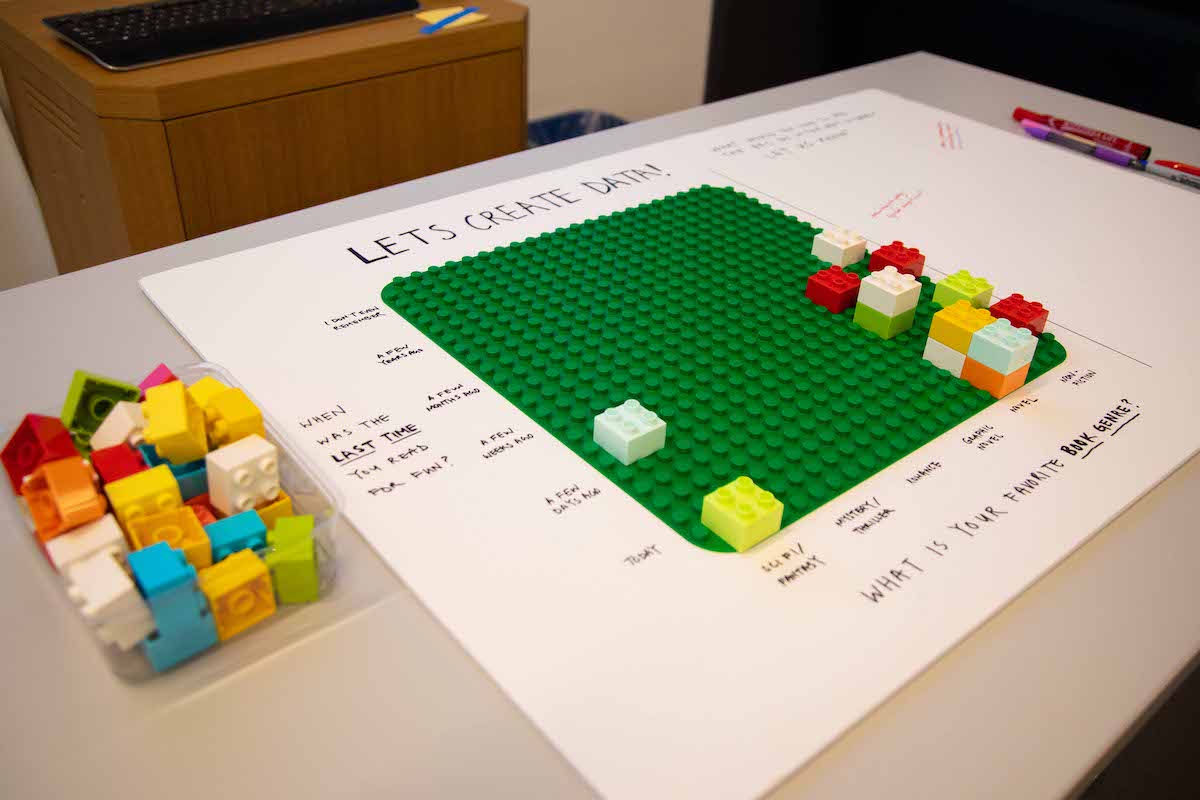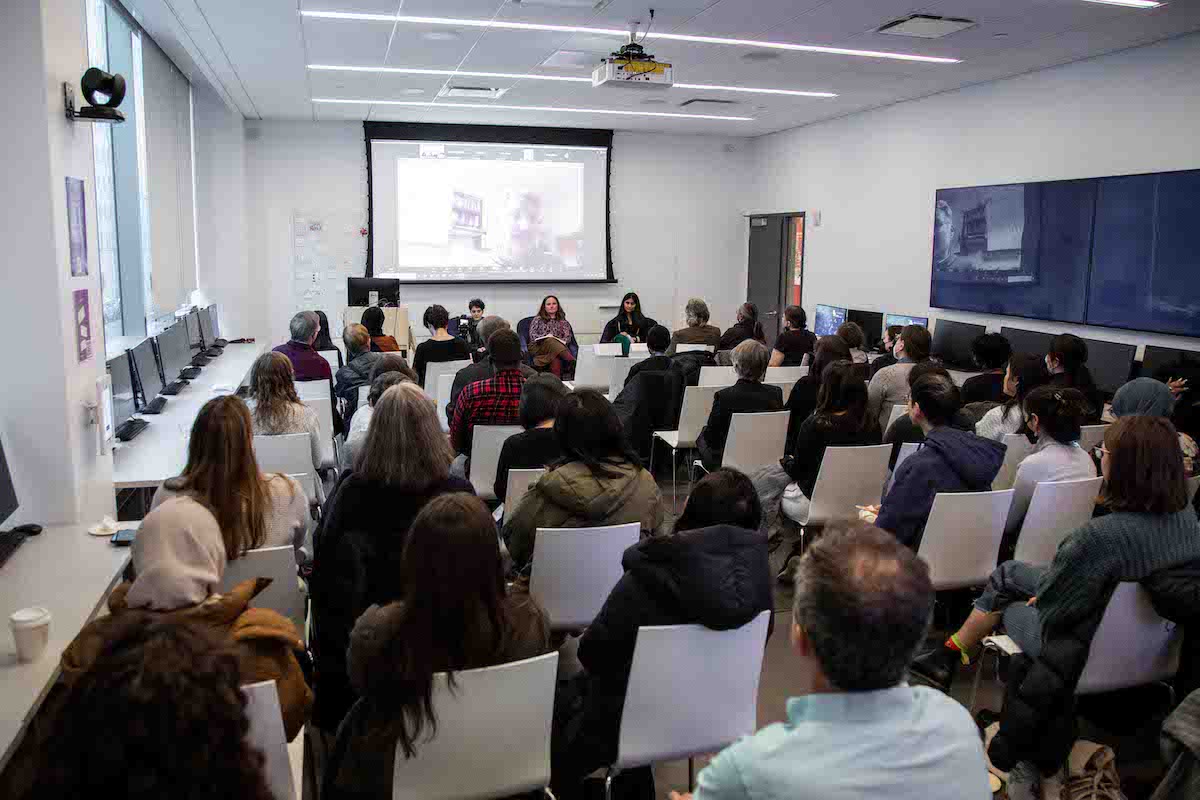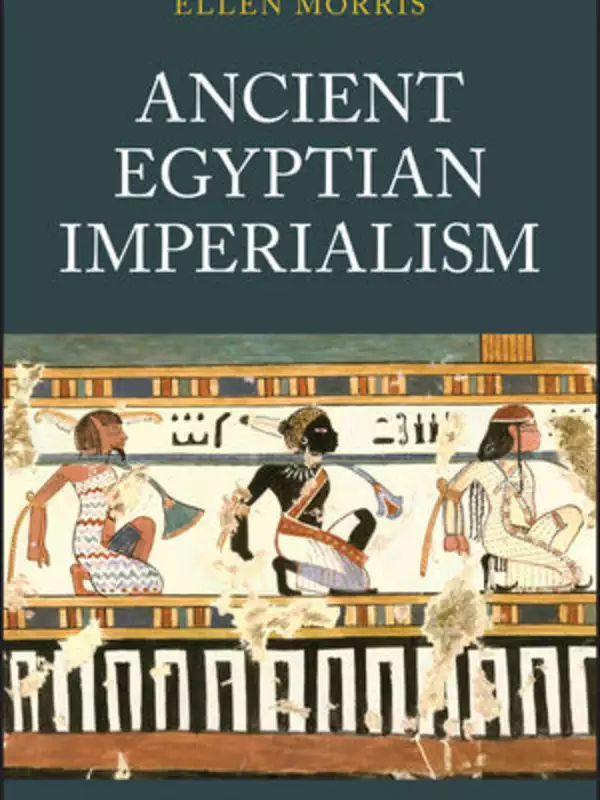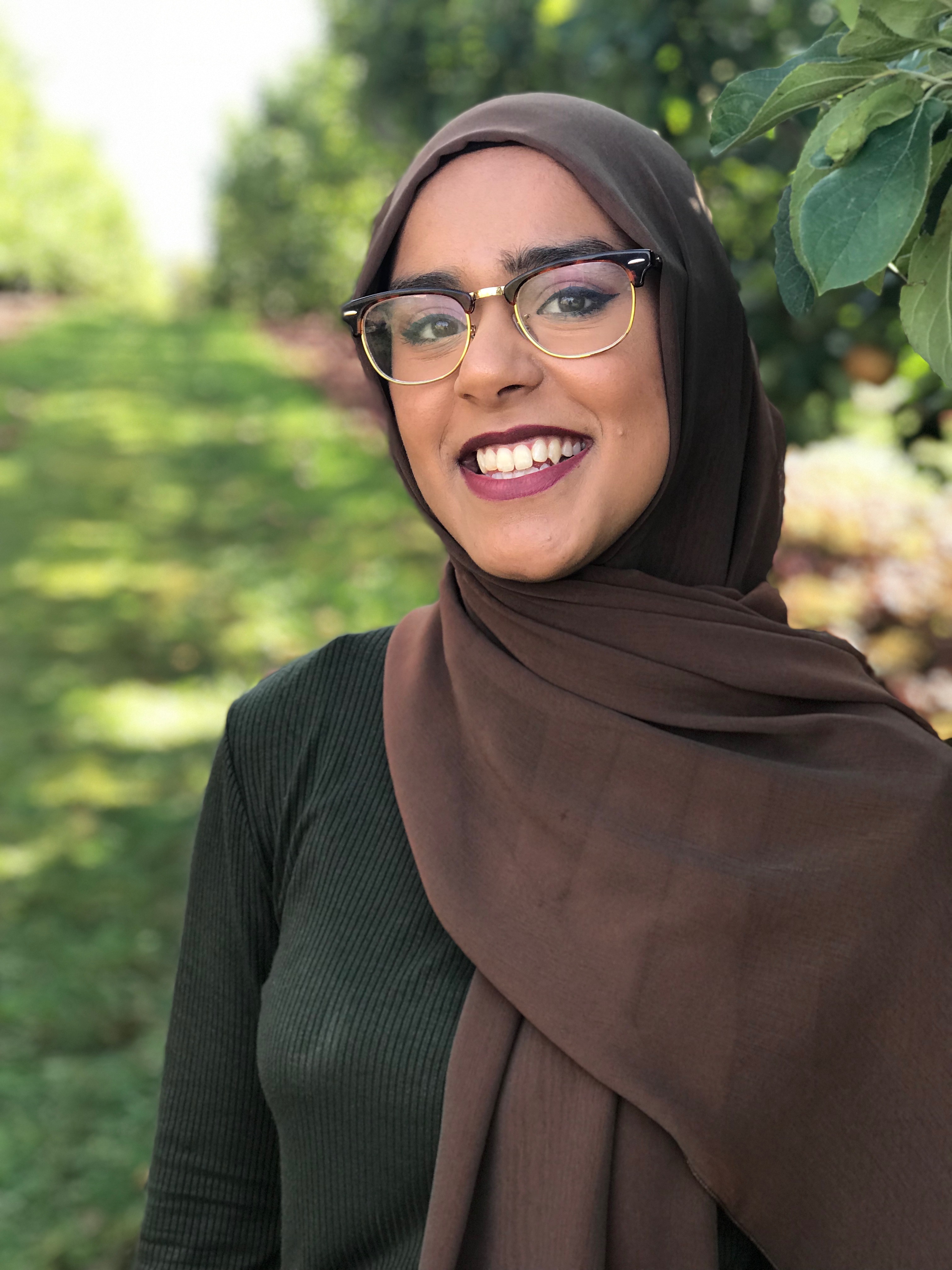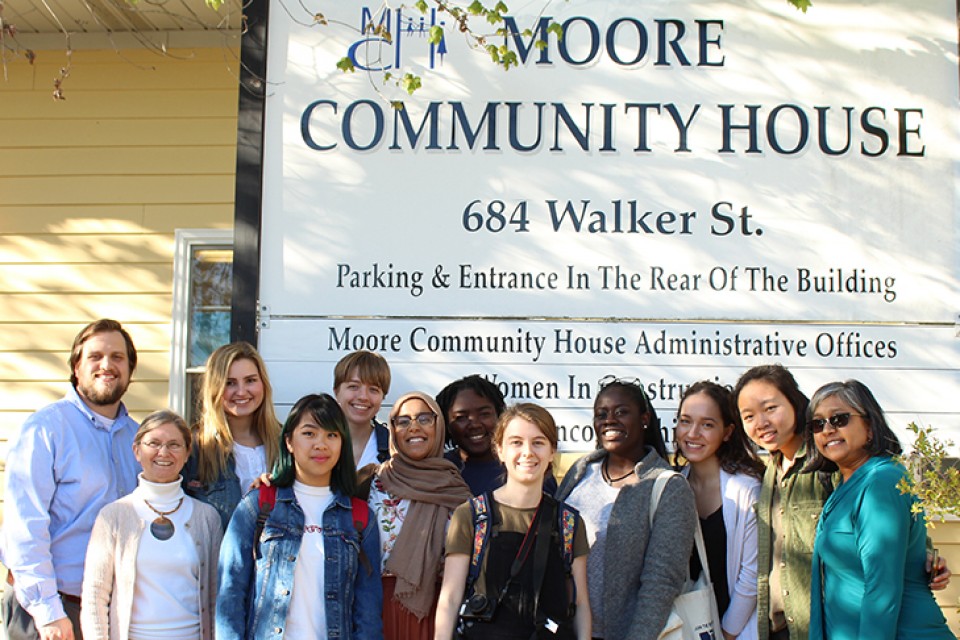
Ten years ago, Barnard launched the Empirical Reasoning Center (ERC) to help faculty, students, and alumnae engage critically with quantitative, qualitative, and spatial data. This mission not only continues today, it has expanded.
Since its creation in 2013, the ERC has collaborated with various science labs — such as those in the introductory chemistry and physics courses — and helped thousands of students and dozens of faculty across disciplines.
“[As a student], I would watch other fellows as they helped people with GIS [geographic information system] and R [a free software for statistical computing] and found both so powerful,” said Fatima Koli ’17.
Koli first sought out the Center as a junior in 2015 and was so inspired she later joined the lab and is now its senior associate director.
Through the ERC, I was able to develop my own skills and expertise with these programs, and I hope that through my work here, the ERC can be for others what it was for me.
Expanding the ERC
On February 3, the ERC observed its anniversary by reflecting on the past 10 years and looking forward to the next.
Director David Weiman discussed the Center’s growth and innovative approaches to learning. For one, Weiman mused, the Center began as a lab with no official space.
“We had a data librarian, Heather Van Volkinburg, who initially worked with us part-time, and I was the co-PI on the grant that originally funded the formation of what is now the ERC,” said Weiman, who is also Alena Wels Hirschorn ’58 Professor of Economics.
The lab was a resource so needed that it soon morphed into an independent center reporting directly to the Provost’s Office; in 2015, the Center also hired its first full-time associate director, Alisa Rod, who is now at McGill University. In 2018, when the College celebrated the opening of the Milstein Center for Teaching and Learning, the ERC’s new home, Weiman spoke about the diverse academic departments across campus with which the Center had collaborated.
“ERC staff has worked closely with faculty in classics, history, and religion to develop ‘digital humanities’ approaches to their research and teaching,” he said. The team has since exceeded its own expectations.
Collaborating and Innovating
Before 2020, the ERC considered recording training sessions so that students would have access to a library of videos that would give them instruction on how to use, for example, certain software for data analysis. Some questioned the pedagogic value of teaching students asynchronously. And then COVID-19 hit. Now, the ERC has a library of Zoom recordings that students use as a complement to the in-person workshops that they track.
Beyond coursework, Weiman said, “we’ve seen an explosion of interest among faculty and students in spatial analysis, so we have expanded our capacity to teach and train students using spatial tools,” such as georeferenced mapping with the industry standard ArcGIS and the open-source software QGIS.
The ERC has also hosted events and conversations on data justice (a display on the topic is housed on the second floor of the Milstein Center), made workshops available to the entire campus community, and collaborated with community partners beyond Barnard’s gates.
Celebrating a Decade of Data Research
The February 3 event featured a robust schedule that included remarks from President Sian Leah Beilock and Alexander Cooley, Claire Tow Professor of Political Science and Vice Provost for Academic Centers and Libraries.
“The ERC epitomizes what is so amazing about the liberal arts,” said President Beilock. “Science, technology, and data are part of the liberal arts, and at the same time all of our more humanistic fields are so important in making what we do in science and data more thoughtful, more ethical, and more impactful.”
Professor of history Premilla Nadasen, who created the groundbreaking course Mississippi Semester, and the ERC’s Koli, presented a forum on community-engaged data.
“We partnered with the Mississippi Low-Income Child Care Initiative [MLICCI], a Biloxi-based organization that advocates on behalf of low-income mothers and child care providers, to develop an index of women’s economic security in the state,” said Nadasen. “The ERC staff was a crucial partner in developing the index. They trained the students and traveled to Mississippi with us to interview local residents. We worked closely with the ERC and MLICCI to identify and weigh poverty indicators and get breakdowns by race and gender so it would reflect the disproportionate number of impoverished Black women in the state.”
Mississippi Semester 2018 photos, courtesy of class photographer Aubri Juhasz ’18
Helman Faculty Chair of Urban Studies Gergely Baics and assistant professor of political science Katherine Krimmel led a panel discussion on empirical reasoning across disciplines with current and former students.
Miriam Posner, digital humanities scholar and assistant professor of information studies at UCLA, delivered the keynote speech.
Two-year ERC Fellow and English and political science major Panu Hejmadi ’24 presented a student perspective at the event. In addition to describing the ERC “as a space that treated learning as sacred,” Hejmadi said that “the job [of a Fellow] required me to be curious and excited about learning from fellow student researchers and to ask questions that would allow them to imagine ways by which their work could be informed by the use of empirical methods.”
The Next 10 Years
Looking ahead, the ERC wants to expand partnerships with nonprofits and community organizations, as well as engage Columbia faculty who might be teaching relevant courses. And back on the Barnard side of Broadway, Weiman is envisioning a new concentration in empirical reasoning to increase data literacy.
What we’re calling empirical reasoning is not just crunching the numbers, data analysis, quantitative data analysis, and spatial analysis but also how to write effectively with data, critically assess data sources, and interpret data and context. We’re hoping to develop some of our own courses and to work with faculty in other parts of the College and at Columbia to expand the repertoire of courses available to students.
Before the pandemic, members of the ERC were developing an Introduction to Empirical Reasoning course organized around data sources focused on New York City. The Center will resume this goal and create a curriculum that would inform students about social justice issues in New York City and train them how to evaluate and identify relevant data.
“Our goal is to answer questions that people have about [things like] using museum data, methods, [or] finding data sources,” said Weiman. “We try to provide services to students, faculty, staff, and are open to all members of the Barnard/Columbia community for whatever level of proficiency they bring with them.”
